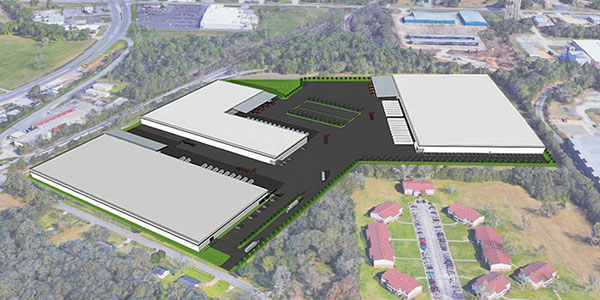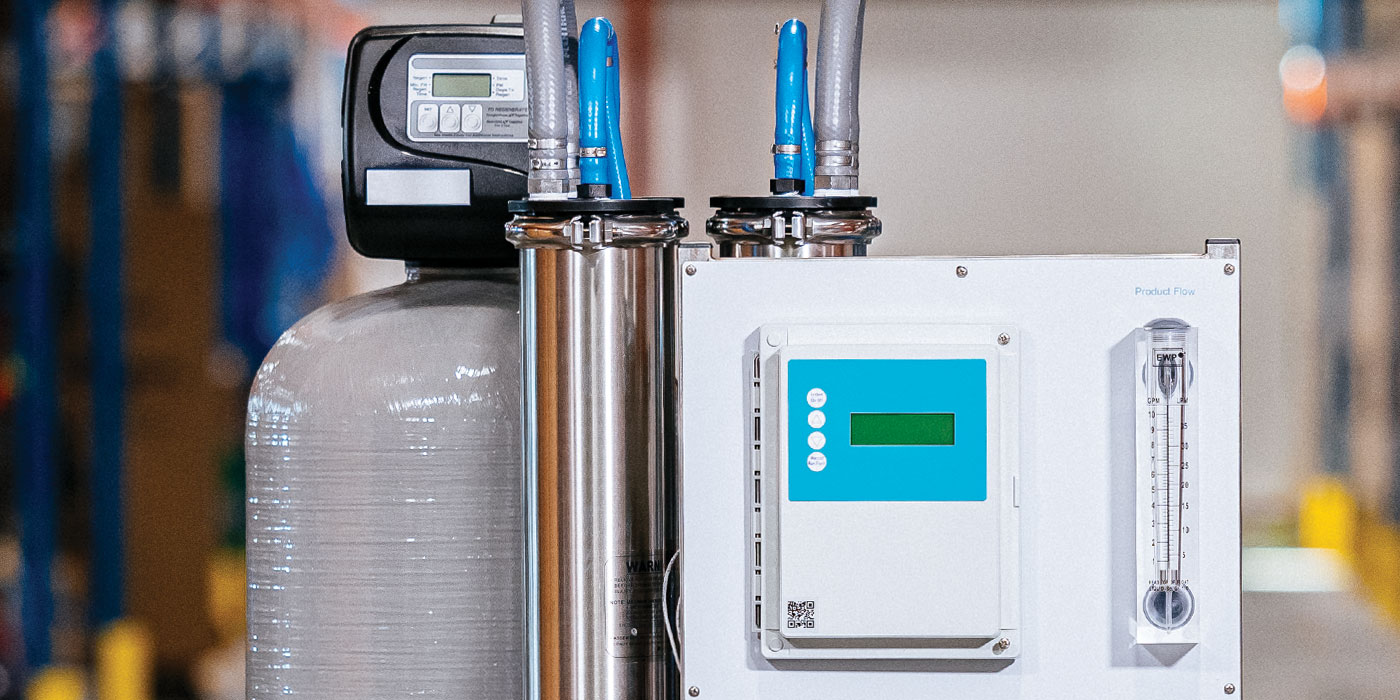Keeping up with today’s fast-paced and demanding carwash environment is not always an easy task to complete, especially if technology is outdated. With so many moving parts throughout day-to-day operations, carwash owners and operators must take control by incorporating the latest, most efficient technologies.
Downtime, especially for busy, swift-moving carwashes, equals loss of business. Owners and operators must make sure their technology is up to date and overall operations are meeting or exceeding expectations.
While effectively managing the hustle and bustle of daily carwash duties is a crucial step for any location, a dependable controller can help confirm productive and, better yet, profitable operations.
Controllers are either computer-based or non-computer-based (embedded). “Some require a PC to operate the controller, so [services] sold are applied to that vehicle,” explains Brian Bath, vice president of sales for Innovative Control Systems. “Others are an embedded design and run on their own as a stand-alone [controllers]. They simply get a program signal from the [business’ point-of-sale] (POS) system to be programmed for a selected service.”
When choosing from the two types of controllers, keep in mind computer-based options may not be as up to date with the latest technological advancements. “[Computer-based] controllers tend to be older technology [since] they still run disk operating systems (DOS), which stopped being supported over 15 years ago,” says Miguel Gonzalez, president and chief operating officer of Micrologic Associates. “[These] controllers lack newer features, such as Web interfaces, which allow the operators to better control their carwashes.”
Furthermore, while any wash could benefit from a reliable controller, the number of features needed for optimal productivity can depend on the type of carwash. An article featured in a previous issue of Professional Carwashing & Detailing noted that full-serve businesses may need less controller functions since they typically use more labor for several additional services, while express washes, which may have more “show” or attractions to enhance the customer experience, may benefit from more controller features.
In addition to full-serve and express carwashes, various other wash types may specific controller functions. For instance multi-profit centers should consider a combined controller and POS solution to better manage all the additional profit centers with ease, shares Gonzalez. “Controllers also allow you to keep better revenue control over your business,” he adds. “And it’s important that the controller/POS combination meets all your requirements for [every one of your] profit centers.”
Moreover, Bath offers a few factors to consider for tunnel, in-bay automatic and quick lube locations:
- Tunnels: Controllers for tunnels are designed for programming and operating conveyorized carwash systems. Consider a controller that measures the length of the car and the speed of the conveyor, so equipment can be turned on at the start of the car and turned off at the rear. This provides more accurate delivery of chemical as well as the necessary cleaning and drying per car.
- In-bay automatics: This type of carwash can benefit from a programmable logic controller (PLC). These controllers are mounted onboard, allowing for the control of the equipment located on the wash machine.
- Quick lubes: Instead of a traditional controller, quick lube sites should consider using a POS system as well as lube bay processing computers and software.
Regardless of the type of carwash, it is important to choose a dependable, high-quality controller that will ensure optimal operations.
The importance of reliability
When searching for the right controller, one of the first things a carwash owner and operator should consider is the reliability of the controller, asserts Ken Brott, vice president of marketing and sales for DRB Systems Inc., adding that when a controller stops working, a carwash essentially stops washing cars.
Having a reliable controller helps to reduce a potential failure. Moreover, Brott recommends finding a controller that is not only reliable, but also has built-in, fail-safe features. “For example, [find a controller with] a simulated pulse switch and a simulated enter switch, so in the event that either of these functions fail, you can continue washing cars based on the simulation,” he advises.
Owners and operators should also consider how precisely and efficiently a controller does its job of controlling the wash equipment, explains Brott. “More exact control will not only result in a cleaner car, [but] it will also save on chemical and utility costs,” he continues. “These savings are especially important in light of the sharp rise in volume that many carwashes have experienced as a result of [offering] unlimited monthly plans [to their customers].”
Additionally, notes Brott, a controller that isn’t controlling equipment with optimal precision can drain profits in addition to costing a carwash more money in wasted utilities because of washing more cars. “This is why the quality of control has become much more important in recent years as monthly passes have driven up car counts,” he adds.
By providing a more accurate wash per vehicle, a reliable controller can help to save costs by limiting the amount of utilities needed. “Controllers [can] efficiently [provide] cost savings of utilities, which is a major cost factor in the operation of any carwash system,” states Bath. “So any savings brought about by having the latest controller technology will save costs, increasing margins to the operator.”
Advancements in technology
“For many years the sole purpose of controllers was to measure the car and turn equipment on/off,” explains Gonzalez. Throughout the years, advancements in technology have caused the capabilities of controllers to soar.
“Although some of the basics still exist today, controllers have become a lot smarter,” says Gonzalez, noting that newer features include anti-collision, simulated pulse, open pickup bed detection, chemical management, automatic speed control and more.
“As is true of almost all technology products, [controllers] keep getting more powerful, allowing the user more freedom and flexibility,” asserts Brott. “The two biggest changes in recent years are one, controllers can now offer a true Web-based interface and two, we now have more precise and exact ways for profiling vehicles so equipment can be adjusted to do the best possible job.”
Moreover, with electronic technology enhancements, informs Bath, controllers are evolving to provide operators with greater flexibility to monitor their operations remotely, which supplies them with live data and information on their facilities’ performance regardless of their location.
“Some of today’s controllers are monitoring every function of the wash process, alerting an operator at the first sign of trouble whether they are on-site or off-site. Less downtime is very important; so the smarter the controller, the better peace of mind the [operator] can have,” he continues. “The latest controllers can communicate directly [with] a motor control center via a network communication, providing cost savings at [the] time of installation as well as better monitoring of the motor starters or the variable frequency drives.”
In addition to monitoring operations remotely to avoid downtime, some Web-based controllers can enable carwashes to adjust their processes to run more productively and efficiently. “[Some Web-based controllers allow] operators to see graphical, real-time representations of what’s taking place in their [washes] via their smartphones, tablets or any Internet-connected devices,” says Brott. “This makes it easy for operators to spot and correct any irregularities or make adjustments based on volume changes or other variables even when they aren’t on-site.”
However, as technology continues to improve, what can carwash owners and operators expect in the future?
Brott believes we will see more progress, especially in the area of vehicle identification, adding, “One day in the future we might see a controller that can completely customize equipment configurations for each vehicle as it enters the tunnel.”
Bath agrees, noting, “Tomorrow’s controllers will provide even greater control by sizing a particular vehicle by size and shape to most efficiently wash that vehicle. This will result in less damage and, again, provide even greater cost savings of resources, such as water, electricity and gas.”
The bottom line with controllers is that the right technologies can help improve your business and results in many different ways. From cost savings to customer satisfaction, controller technology is going to be something worth investing in moving forward.














